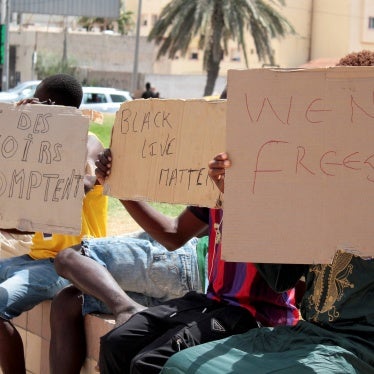(Amman) – Jordanian authorities in 2023 limited civic space and enacted a new cybercrime law that further undermines free speech and privacy online, Human Rights Watch said today in its World Report 2024. Jordanian authorities arrested and harassed peaceful dissidents and journalists and used vague and abusive laws to limit free speech and peaceful activism.
“Between the constant threat of harassment and arrest and the new risk of intrusive digital surveillance, activists working to strengthen democracy and push human rights reforms in Jordan are facing a tougher landscape,” said Adam Coogle, deputy Middle East director at Human Rights Watch. “Jordanian authorities should reverse course on limits to civic space and allow Jordanians to participate in public affairs as the country faces significant challenges.”
In the 740-page World Report 2024, its 34th edition, Human Rights Watch reviews human rights practices in more than 100 countries. In her introductory essay, Executive Director Tirana Hassan says that 2023 was a consequential year not only for human rights suppression and wartime atrocities but also for selective government outrage and transactional diplomacy that carried profound costs for the rights of those not in on the deal. But she says there were also signs of hope, showing the possibility of a different path, and calls on governments to consistently uphold their human rights obligations.
Jordan is grappling with high unemployment, particularly for youth and women, coupled with a sharp rise in poverty following the pandemic. An increase in the cost of living makes it difficult for many people to afford necessities.
Human Rights Watch reported in June that Jordan’s automated cash transfer program for workers on low incomes developed with significant financing from the World Bank is undermined by errors, discriminatory policies, and stereotypes about poverty. The program is part of a social protection system that is failing to provide support to many people even as they go hungry, fall behind on rent, and take on crippling debt.
Jordan remains one of the few countries that still allows imprisoning people for debt, which is prohibited under international law. In 2023, the authorities lifted the pandemic-related state of emergency, ending a moratorium on debt-related imprisonment for sums exceeding 5,000 Jordanian dinars (about US$7,000).
In August, Jordan’s parliament hastily overhauled the country’s cybercrime law, circumventing public discourse and input. The law uses imprecise, vague, and undefined terminology like “fake news,” “inciting immorality,” and “online assassination of personality.” Such language falls short of meeting international legal standards for clear and precise legislation, making it difficult for people to understand and adhere to the law.
Notably, the authorities dramatically increased penalties for online defamation or “character assassination” to a minimum three-month jail sentence or a fine of up to 20,000 Jordanian dinars (about US$28,000).
Jordanian authorities have systematically targeted lesbian, gay, bisexual, and transgender (LGBT) rights activists and coordinated an unlawful crackdown on free expression and assembly around gender and sexuality, which has forced several activists to shut down their organizations, discontinue their activities, and in some cases, flee the country.









